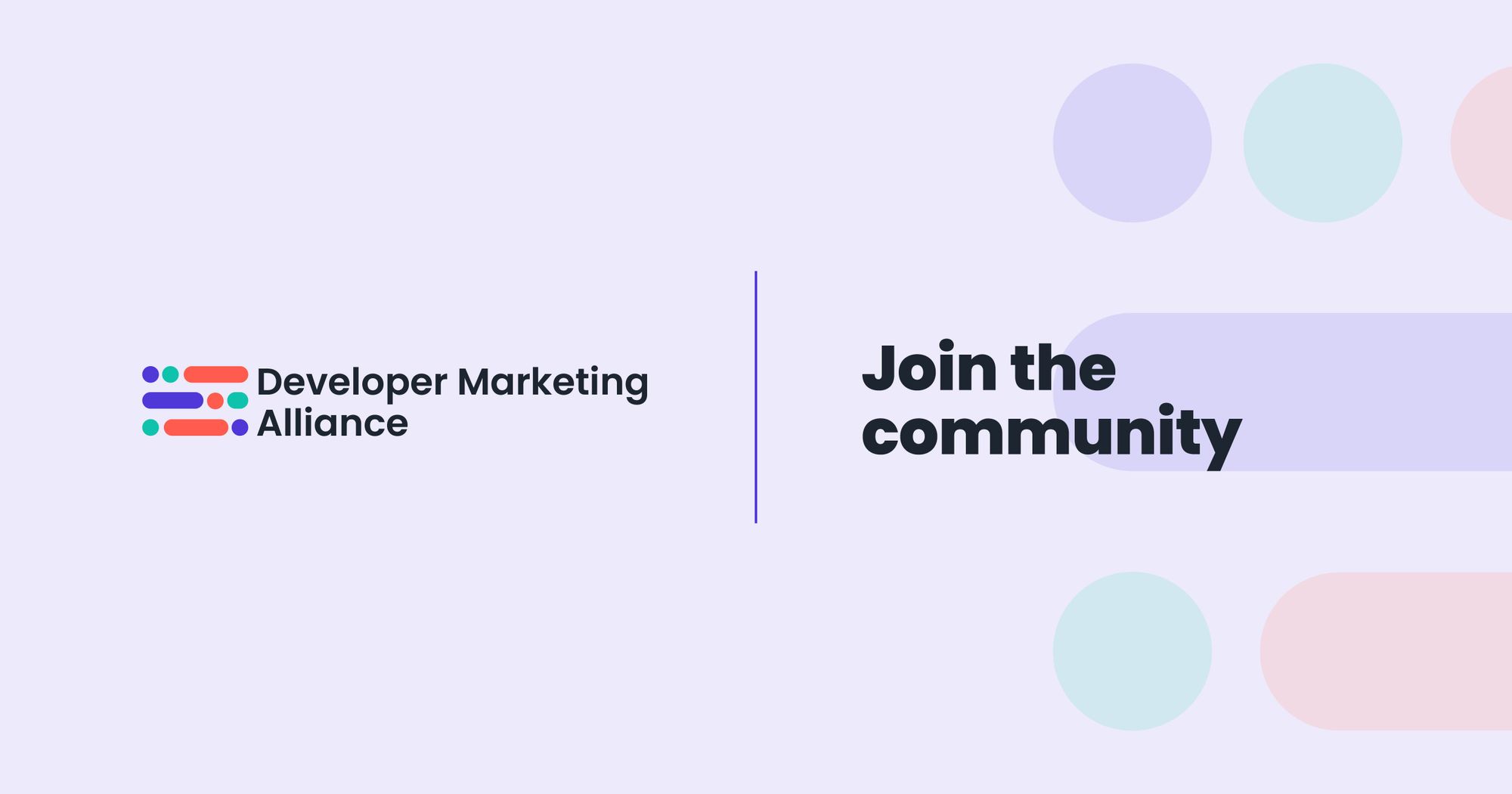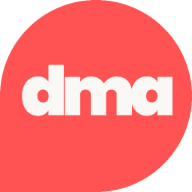Katie Miller is the Director of Developer Marketing at Slack. In this article, she explains how developer marketers can manage their long-term career, and what they can do to boost their chances for success in the future.
This is incredibly relevant in today's atmosphere where more and more individuals are being made redundant. If you want to listen to the full conversation, tune in to our podcast where we chat to Katie about this topic. 👇

Driving success in my career
My role at Slack largely involves leading the campaigns and programs that take the product capabilities and enablement to developers and builders, and making sure they get to them in a thoughtful, targeted, and measurable way.
That way, they can do what they want with Slack’s platform to build successful, powerful, and effective integrations and applications.
I've been in the developer marketing space full-time for well over a decade. If I count when I was in ads product marketing and APIs were part of my portfolio, that developer marketing experience actually extends a little bit beyond the decade.
But what really drives me in my work and my purpose, whether it be reflecting back on where I got my start in dental school admissions, working as a life coach, working in the ad tech business, or now in developer programs, is how I build programs, experiences, and content that connect people with the information they need to make good decisions and be successful.
That's something that's really driven me through all the different elements of my career and all of the different industries I've worked in.
Why I chose developer marketing
As I mentioned, when I worked in ad tech product marketing, I was fortunate enough to have APIs as part of my portfolio of products. So really, at that moment, I had no choice but to learn about them.
My areas of focus were programs, products, and features that enabled large advertisers and agencies, and APIs were one of those features that were available. That's really what introduced me to the developer relations function, and developers as a target audience.

And if I reflect back even further to when I started in ads customer marketing, I was trained to learn all of the available products, which included APIs. All of us that started in Google Ads way, way back in the day knew that extensibility was an option and an opportunity for all of our advertisers.
In many ways, developers as an audience, APIs, and developer capabilities have always been part of my tech career and my tech journey.
So, what keeps me here now that I've discovered this space?
I truly believe in the value of developers to a company's success. Developers bring extensibility. If you think about it, a company can build 70-80% of the features that are available, but developers really add on a lot of features, capabilities, and integrations, which brings value to a company, to the developers, and to the end users.
This is a growing space, but there's that stereotype that developers can't be marketed to. I don't necessarily agree with that stereotype, but at the same time, there's something intellectually and professionally challenging about working with a target audience that has that historical stereotype of not liking to be marketed to.
It just makes it a really, really fun challenge.
There's no longer a retail industry or an entertainment industry. Every industry has a tech component, and most products have a platform component. So, even if it isn't the full offering that a company provides, there's going to be a piece of an offering on the tech side that’s for developers.
And even if it isn't someone's full-time role, they can't not think about developers as one of the key audiences that they’re marketing to.

Navigating uncertainty in the industry
We’re living in unusual times. For every day that another round of reduction in forces is announced, there are other companies posting that they're hiring.
And yet at the same time, the other thing I've observed is the strength of the community and rallying around one another, which has been incredible. People are really tapping into one another's networks, and being there to lift one another up. Everything from job boards, a friend of a friend of a friend, and making those connections.
I think people really have each other's backs. There's a recognition of the amount of talent that's available and the amount of potential that's in this space, and it's helping everyone to connect the dots to realize that potential.
We've seen full well that even for individuals who have years or decades of expertise within a particular product or at a particular company, it hasn't necessarily kept them from being part of the reduction in force.
So, I do think that there’s that sense of, how can one think about their skills and experience that isn’t tied to a particular product or a particular brand, but much more much broader than that? What are those transferable skills that are agnostic of a particular company or organization?

At the same time though, I actually think that's a healthy exercise to maintain, even in more bullish times because you don't know what's going to happen. There could be a reorganization within your company, a reprioritization of products and business, or new opportunities that could present themselves, and the need to be open-minded and ready at any time to see a new opportunity that might be available.
It’s not just thinking glass half-empty, but also thinking glass half-full.
The importance of community in long-term career management
When preparing for the future, community is invaluable, and it's something that I took for granted early in my career. Now, I'm seeing it come to the surface in full force.
Community can come in a number of different ways. It can be having really positive, healthy, collegial relationships within your company. I reflect back on the professional relationships I've maintained since leaving other jobs, and a lot of my community comes from groups that I’ve formed with previous colleagues.
It can also come much more formally through established communities, for example, what the Developer Marketing Alliance offers.
Especially for folks who are early on in their career or perhaps are in smaller organizations, having those more formal communities is a really good first step because it takes away some of that angst around networking, asking someone questions, or asking for help, because that's built into the identity of the community.
I’m an unabashed extrovert, but when I first started off in tech, the idea of networking felt so foreign to me, and it was really, really scary. So, for folks who might feel the same way, being able to tap into local communities or even global virtual communities is a really good first start.

Setting achievable career goals for the short and long-term
When it comes to setting your career goals, the short-term piece is the importance of performing to the best of your abilities within the job that you've been hired for.
That can be tricky because a lot of times, we might realize partway into an opportunity that it isn't quite the right fit.
At the same time though, whether it's internal transfers or external, there’s a need to show capability and competency in the work that's been done.
So, set short-term goals that are about delivering to the expectations of the role, the level and the ladder, and what the business expects of you, as well as those short-term professional and personal development goals.
What are the things that I want and need to do in this moment to excel at my job? What are the things that I need to do to develop a new skill set that might allow me to pivot into something else, or to stretch and expand within the job that I'm currently working in?
That's much more immediate.
What do I need to do in this moment to set myself up for success to deliver what my company expects of me, as well as make sure that I'm growing as a professional and a person?
The long-term piece is much more interesting to me personally. For example, when I started off in tech back in 2005, there was no Android or iPhone. The cloud wasn't really a concept. We weren’t talking about no-code, low-code, and pro-code or crypto or any of these emerging spaces. VR was something that happened in sci-fi movies.

If I were to have set specific goals, the technology has evolved so quickly that they would’ve been out of date by the time I arrived at them.
So, the way I think about things longer term is, what's that broader narrative that one wants to tell? And I reiterated mine at the beginning, which is the idea of building programs that connect people to the information they need to make good decisions and be successful.
That’s agnostic of the company, ladder, level, role, and industry. It applied to work in dentistry and ad tech, and it applies to work in developer programs.
When I think about the longer term, it's not necessarily, “I want to be in this role, at this level, at this company, by this stage in life".
It's, “What are the values that really drive me? What are the things I need economically? Am I the primary breadwinner? Do I need to be the primary carrier of insurance? Am I taking care of children or elderly parents? What are the values I need in a company to be happy?"
It's really challenging folks to answer those questions. What's the one update that you’d give to someone to describe what drives you? What are the three values you’d say to a hiring manager that you're looking for in a job, regardless of the organization or the company? What are the things that you pragmatically need in the short, medium, and long term from employment?

Upskilling as a pathway to career progress
I take a really broad approach to the idea of upskilling because there are formal ways to do it.
For example, a lot of the colleagues that I started with early in my tech career, after three to five years they went and got their MBA or a law degree. They went back to school formally as a way to make a shift or grow within their professional careers.
With the emergence of a lot of online education and certification programs, I've seen folks who’ve done those programmes in parallel to working full time, either as a way to strengthen their ability within their current role or to set themselves up to be able to pivot.
There's also a lot of learning that can be done through our day-to-day jobs that we may take for granted in the moment, but in hindsight, we’re able to reflect back on.
For example, I didn't get my MBA; I learned everything I’m doing in tech from being in tech. And it's come from being open-minded and curious.
When I moved from ad tech into developer marketing, it was about spending quality time with the developer relations team, listening, and allowing them to refer me to publications to read and introduce me to the next person and the next person to have the conversation.

Ultimately, there are a lot of different ways to upskill, which I think is absolutely critical. It shows the ability to learn, curiosity, and flexibility, all of which are really, really good skills to have from an employment perspective.
But I think that there are a lot of different ways to get to it depending on your schedule, your flexibility, your budget, and what you want to do. That's what I’d really challenge people to do; continue to learn, but also recognize that the path to learning can take many, many different forms.
In some ways, when you have that wealth of resources, it’s about knowing where to start, which ones are credible, and which ones are going to have the biggest impact. In many ways, that can feel much more overwhelming than having finite choices.
But, at the same time, going back to the conversation about community, if you have a strong community, both within your company and across companies, you have great reference points there as well.
Bringing it back to developer marketing and developer programs, referrals and recommendations are such a key part of how developers make decisions.
Really think about how to tap into that for your own professional growth. What programs have folks done that they’ve found credible? What are their favorite blogs, podcasts, and newsletters?
Really leverage that community to narrow in on what some of those great ways are to learn and keep growing.

Applying project management principles to long-term career growth
When a former colleague of mine was unfortunately part of reduction in force, they put up this really beautiful post on LinkedIn about the approach they were taking.
And they actually applied the exact same annual goal-setting approach that their company used for the way they were managing the time that they were going to take to explore what their next opportunities were.
I think using some of those same principles of how one would organize work can actually work really nicely with a career.
Somehow, I find it much easier to be confident, focused, organized, and decisive in my day-to-day job. And when it comes to asking some of those big existential questions about the future, it's much harder to tap into some of those skill sets.
So, what's the additional scaffolding and structure that can provide me with structure, guidance, and accountability?
Over the years, I've actually found that tapping into professional coaches, life coaches, and executive coaches has been the thing that’s helped me tap into those project management skills much more confidently and in a much more accountable way to manage my career.
It’s also made me more motivated and focused on my future goals because it gets me out of my own head. I think simply verbalizing something, whether it's right, wrong, complete, or unpolished, makes it much more real.

Having that coaching relationship can take many forms in terms of paid, unpaid, course, or workshop-based exercises versus more of a regular relationship. But you also have a partner in that journey.
And in many ways, it's an agnostic partner. It's not someone who's tied to your work responsibilities. It's not someone who you're related to. It's someone with whom you have a very close relationship, but it’s not necessarily directly personal or professional. It means you're not alone.
And, yet, at the same time, their job is really to listen and give you the structure that you need to make those decisions.
Perhaps it's not surprising that when I think about what drives me in my career, the thing that helps me be the best is someone whose job it is to help people make decisions and be successful. That’s why I'm such a big fan of coaching.
I've seen these conversations come up a lot on LinkedIn about not being afraid or ashamed to put out there that you're open to work, and not being afraid to ask for help. It can feel really, really lonely right now, especially because there are so many people in the same situation.
The truth is that we within the tech community want to see really good talent succeed. Make yourself available on LinkedIn, follow folks that are doing work similar to what you want to do so you can see their referrals as they post them, and so you can see the type of network they have.
I know it’s easier said than done. But I hope this advice is helpful for anyone who's feeling a little bit stuck, whether it's because of reduction in force, or because they're just looking to make a change within their current job.
I think we focus a lot on the very immediate moment, which makes sense because that's what a lot of folks are going through. But the truth is, these things are really important even in the best of hiring and economic times.
There are folks who are thinking, Okay, I've done this job for a couple of years and now I'm ready for the next challenge. Or, I went through a reorganization and I have a new manager, and now I'm not sure if this is the fit for me anymore. I'm interested in something new.
And so all of these principles really apply, regardless of where you are, and if you're thinking about how to make a change and grow.

Differentiate yourself through the power of storytelling
In a really competitive job market, being able to distinguish and differentiate yourself is so important. With recruiters and hiring managers going through so many resumes and so many outreach moments, how do you communicate who you are and what you're capable of in a crystal clear, succinct manner?
I think it takes three forms. One is that one-breath update, that story arc you can tell that’s unabashedly you and you can apply it to any job, any company, any level, and any function.
The second is that really strong values story. These are the things that are unarguable. They need to be present, and they might ebb and flow in volume. But if these things aren’t present, it's not going to be the right fit. And it's important to know and communicate that.
Hiring is as much about somebody wanting to hire you as it is you feeling like it's a good fit for where you are in your career, which is why values are as important as that story.
The third thing is how you tell a more detailed story of your experiences that isn't purely that list of skills. But it's really how you use your skills to carry your story forward.
So, it isn't, “I’m responsible for XYZ,” it's, “I drove X percent growth in community through exceptional project management skills.” It's showing how you used your story and your skills to be successful within your role. It's those proof points.
In many ways, I think about how I was taught to write essays. You have your leading sentence in a paragraph, and then you have the data points within that paragraph that prove that opening statement you made right at the beginning of it. So tapping into some essay writing principles can be a really nice way to think about it.

There'll be some companies that are looking for chameleons or generalists or somebody who can come into a big murky, messy scenario. And they'll see the transferability of skills. They'll see that this person did XYZ and say, “We need them to do XYZ, even if we're not calling it that.”
A lot of places are now going to look for things like, “A growth marketer does X, has this person done X? A social media expert does XYZ, has this person done this?”
This is where I personally get super stubborn. Sometimes I say, “I can do it all.” But if that doesn't come through on LinkedIn or on a resume, they’ll say, “Well, that's lovely that you can do everything, but I need someone who does this one thing.”
Make sure that if there's a role that you really, really want, they position it a certain way that you can pivot your story to tell it in that particular way, as long as it doesn't sacrifice your story and your values.

Curiosity and adaptability: The keys to unlock career success
I really encourage folks to remain curious and open-minded, remain learners, and really see the connections and opportunities.
It goes back to the point I made about when I started my tech career in 2005; the vast majority of the technology I’m currently using in marketing did not exist. So having that growth mindset will really set one up for success because it allows them to be open to possibilities that they may have been closed off to because it didn't necessarily look a certain way.
And again, doing that while staying true to the story and the values is important.
I didn't have this concept when I started my career, of what program management or developer relations was. And yet, when I look back, I can't imagine a better fit for what I want to be doing within tech.
If I hadn't been open to seeing those parallels between what drives me and my passion, and what this industry offered, I never would’ve seen that as a pivot in my career, when I’d been in ad tech for seven or eight years and was looking to challenge myself in a new way.
Really think about what those broad transferable skills are that you bring to the table, and be open and curious about how you can use them in new ways, especially as the hiring marketplace evolves.
Join a growing community of 1,500+ marketers and developers to check out job ads, discuss careers with your peers, talk about hot topics in the industry, and so much more.





